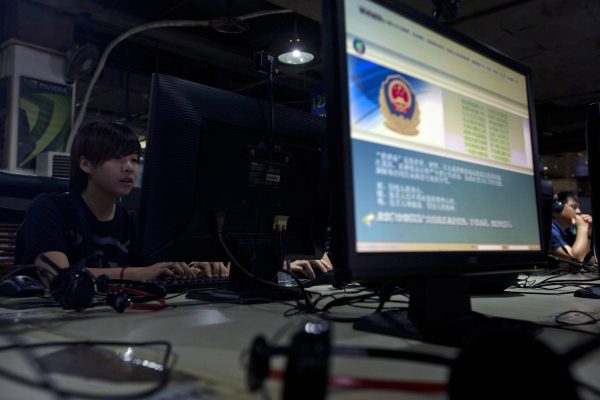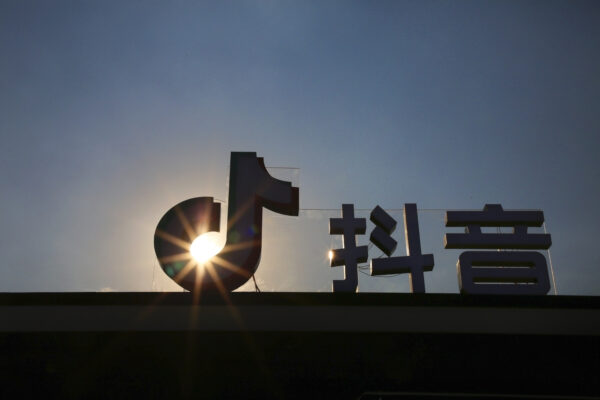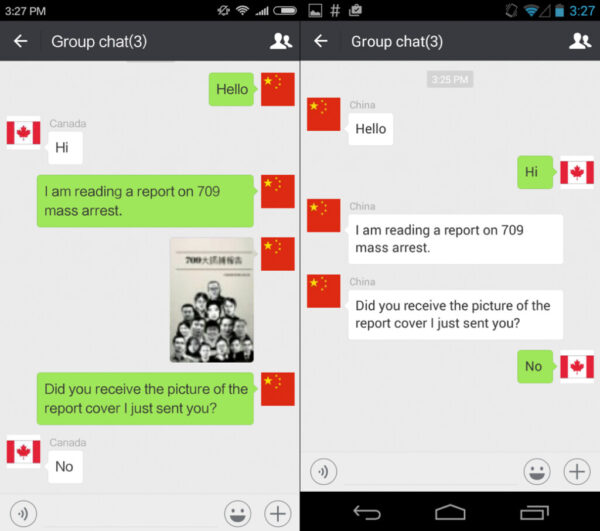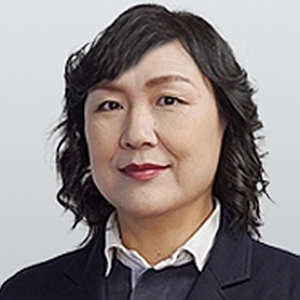Beijing Labels 80,000 Online Posts as ‘Rumors’ Ahead of National Party Congress
Distressed Patriotic Flag Unisex T-Shirt - Celebrate Comfort and Country $11.29 USD Get it here>>

China’s top cyberspace watchdog announced Sept. 29 that it has labeled some 80,000 online posts as “rumors” since August in a campaign targeting “online rumors and false information”.
According to a statement of the Cyberspace Administration of China (CAC), it has organized 12 major Chinese digital news portals and social media platforms to “refute and label rumors” related to “key social and livelihood areas” including health, food safety, education, employment, and natural disasters.
The CAC required all key websites and platforms to set up special accounts or columns to release “rumor-refuting information” and to “send rumor-refuting content accurately to all users who have been exposed to rumors,” according to the statement.
Posts that are labeled “rumors” are to be exposed “in a timely manner” on the relevant platforms so as to “squeeze the living space of online rumors to the maximum extent so to ensure there is no space for online rumors to hide,” reads the statement.
The CAC also encourages netizens to report and provide clues to rumors on its reporting platform.
China’s cyberspace has been heavily censored by the Chinese Communist Party (CCP), and the regime’s recent campaign further tightens its grip on China’s digital space.
Sheng Ronghua, deputy director of the CAC, said at a press conference on Aug. 23 that the watchdog had “cleaned up more than 20 billion pieces of illegal and unhealthy information and nearly 1.4 billion accounts” since 2019.
Many of the so-called rumors are posts and footage uploaded by Chinese netizens during the pandemic trying to communicate their plight and often asking for help.
Increased Control Before National Congress
Several Chinese netizens told the Chinese language edition of The Epoch Times that they are now under even stricter control by the CCP.
Mr. Lin (pseudonym), a business owner from China’s eastern Zhejiang Province said that Chinese export companies find it harder to do business with foreign companies due to censorship.

Since the outbreak of COVID-19 at the end of 2019, the CCP doesn’t permit Chinese export companies to travel overseas to attend international exhibitions or trade fairs, Lin said. Chinese business people have to use online meeting apps to communicate with their foreign counterparts, Lin said.
“But the government recently issued a document, explicitly banning the educational sector from using any overseas apps or using VPN. Anyone who communicates with foreigners using VPN or overseas communication apps must report themselves to the government,” Lin said, adding that those who fail to do so face severe punishment.
VPN is an abbreviation for “virtual private network.” It provides better safety and privacy over a public network.
Lin said that the government forced people to communicate via WeChat with foreign companies.
“The official regulators know everything we’re talking about,” said Lin. “They know what you say to any company abroad. We don’t have any choice but to obey [and use WeChat which is monitored by the CCP].”
Lin said that several of his friends have sold their residences in China and are planning to emigrate to other countries, as they could no longer bear the censorship.
Mr. Wu (pseudonym) is a resident of China’s southwestern Guangxi Province. He told The Epoch Times that he has more than 10 Weibo accounts—with several hundred thousand followers—which have all been suspended by the authorities.
“I have posted some video clips and wording regarding protests against lockdowns, which are regarded as sensitive information, and now all my accounts have been banned,” Wu said.
He said that all the Chinese social media require netizens to register using their real names and IDs. “Once you are banned, it means trouble,” said Wu, adding that it is difficult to re-register a social media account.
Cui Li (pseudonym), a resident from China’s western Xinjiang, told The Epoch Times that she uploaded footage of a protest against lockdown in Wanjialiang, a district in the regional capital city of Urumqi.
“I posted it on Douyin [a Chinese version of TikTok], and it was removed within five minutes. Then the police called to warn me not to post similar contents,” Cui said.

Expat Censored in China and Abroad
Wang Qingpeng, a former Chinese human rights lawyer now living in the United States, experienced the CCP’s information censorship both in China and in the United States.
When speaking with the Chinese language edition of The Epoch Times on Oct. 1, Wang said that she didn’t feel any censorship at first due to the CCP’s brainwashing. She started to think about freedom of speech after she began to use social media WeChat in 2014 and joined some rights groups on the platform the following year.
“I saw many of their posts were removed and their accounts were banned, which made me think about the issue of free speech,” Wang said.
Her first WeChat account was terminated on June 4, 2017, after she used it to call for donations to help rights lawyers persecuted by the communist regime.
The date of Wang’s account being deleted—June 4—is regarded as a sensitive phrase and date by the CCP. On June 4, 1989, the regime’s tanks rolled into Beijing’s Tiananmen Square to crack down on peaceful student protesters who were demanding democracy and an end to corruption. It is still unknown how many students were killed by the regime on that day.
Wang registered a new WeChat account after she came to the United States.
“This account was suspended as well, it happened after I posted a New Year’s greetings written by a group of rights lawyers on Jan. 1, 2019,” Wang said.
She said that WeChat had a function to block particular posts or accounts.

The Chinese regime threatened her family in China, asking them to pressure her not to speak out about human rights issues in China.
“My parents made a statement to cut their ties with me, and my husband once thought of divorcing me,” Wang said. But she was determined to continue to speak up against the CCP.
She has called for the end of the regime’s ‘Great Firewall’, which is a combination of legislative actions and technologies used by the CCP to control how Chinese people use the internet.
“The Chinese are enclosed by the CCP’s firewall, which is a shame for politicians all over the world who do business with the CCP,” said Wang. “Western countries should insist that the CCP remove the firewall as a condition for it to do business with foreign countries or join any international organizations.”
“If there was no firewall, brave Chinese citizens would be able to meet on various platforms to gather strength, exchange information, and conduct civic drills. There are many awakened people in China, but they have no channels to speak out,” Wang said.
“Some Chinese people do not know the truth because they are strictly censored. It’s an urgent matter to pull down the regime’s firewall,” she said.
Fang Xiao and Hong Ning contributed to the article.





